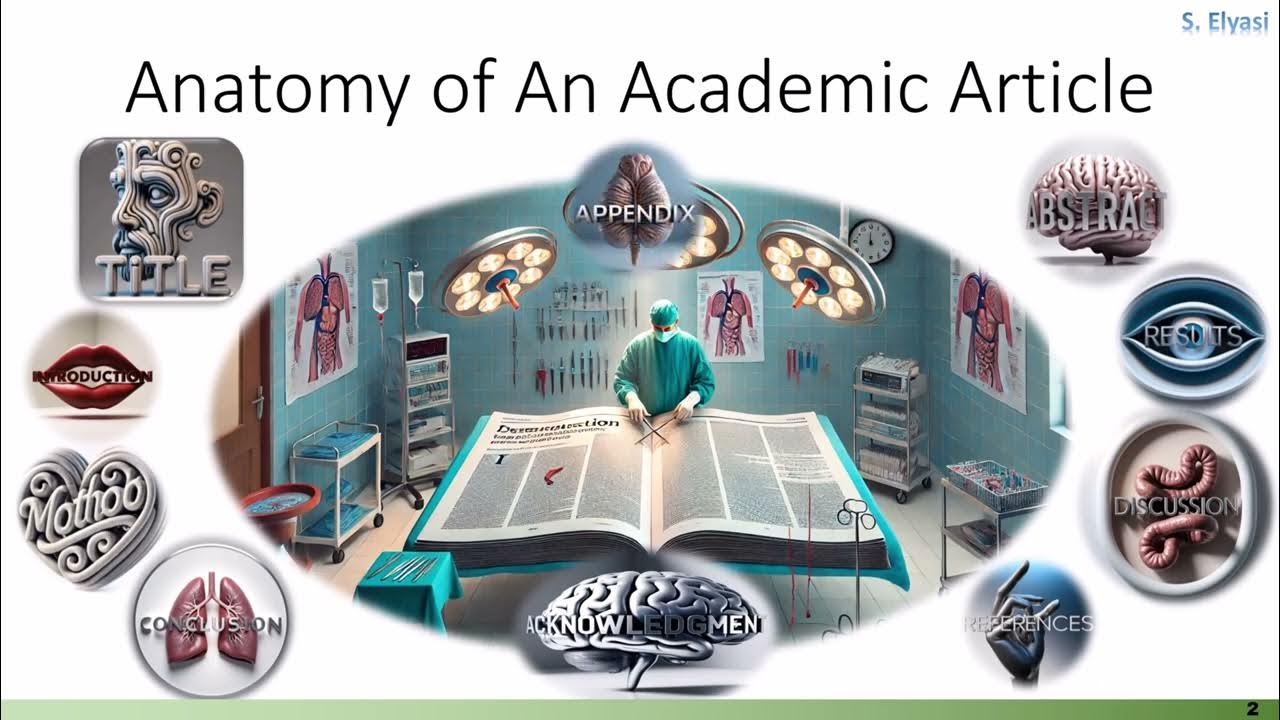Academic Writing Style
Summary
TLDRThis video provides key tips to enhance academic writing. The three essential principles are clarity, formality, and objectivity. To achieve this, the video suggests making sentences direct and concise, avoiding contractions and colloquial phrases, and using formal language. It emphasizes the importance of being objective by presenting evidence rather than personal opinions, and adopting a third-person perspective. Additionally, the use of the passive voice and avoiding emotive language are recommended. The video concludes by encouraging writers to maintain these three core principles in order to produce strong, effective academic writing.
Takeaways
- 😀 Be clear, formal, and objective when writing academic essays.
- 😀 Avoid unnecessary words and get straight to the point in your writing.
- 😀 The first sentence of each paragraph should clearly state the main point.
- 😀 Restructure sentences to eliminate redundancy and make your argument concise.
- 😀 Avoid contractions (e.g., use 'do not' instead of 'don't') to maintain formality.
- 😀 Refrain from using colloquial expressions like 'at the end of the day' in academic writing.
- 😀 Use more formal vocabulary, such as 'considerable' or 'significant,' instead of informal terms like 'a lot.'
- 😀 Write in the third person and avoid using personal pronouns (e.g., 'I' or 'you').
- 😀 The passive voice can be helpful in academic writing for more formal expression.
- 😀 Emotive language should be avoided to maintain objectivity and a reasoned argument.
Q & A
What are the three key principles to follow when writing academic essays?
-The three key principles are being clear, formal, and objective.
How can you make your writing clearer in an academic essay?
-To make your writing clearer, ensure that your first sentence of each paragraph makes your point in a simple and concise way. Avoid unnecessary words and get straight to the point.
Why should contractions be avoided in academic writing?
-Contractions should be avoided in academic writing because academic style is more formal than everyday speech, and contractions make the writing sound casual and less professional.
What are some examples of informal words and phrases to avoid in academic writing?
-Examples of informal words and phrases to avoid include 'a lot,' 'loads,' and colloquial expressions such as 'at the end of the day.' Instead, use more formal alternatives like 'considerable amounts' or 'having considered the evidence.'
What is the importance of being objective in academic writing?
-Being objective is crucial because it ensures that the writing is based on evidence and analysis rather than personal bias or emotions. This helps create a more reasoned and credible argument.
Why should academic writing be written in the third person?
-Writing in the third person helps maintain objectivity and distance from personal opinions. It avoids the use of personal pronouns like 'I' or 'you,' which could introduce bias.
What is the difference between active and passive voice, and which is preferred in academic writing?
-The active voice focuses on the subject performing the action (e.g., 'I interviewed 30 participants'), while the passive voice focuses on the action itself (e.g., '30 participants were interviewed'). The passive voice is preferred in academic writing to maintain objectivity and remove personal involvement.
How can emotive language affect academic writing?
-Emotive language can make arguments appear biased and provoke strong emotional reactions. It is better to tone down such language and present the argument more logically and neutrally.
Can you provide an example of how to rephrase a personal opinion to make it more objective?
-Instead of writing 'I believe that the amount nurses are paid is appalling,' you could write 'The evidence suggests that there should be a reform of nurses' pay.' This makes the statement more objective and based on evidence.
What should you do if you need to express an idea that would normally require using 'I' in the sentence?
-Instead of using 'I,' you should rephrase the sentence to avoid personal pronouns. For example, 'I am going to investigate' can be rephrased as 'This essay will investigate.'
Outlines

This section is available to paid users only. Please upgrade to access this part.
Upgrade NowMindmap

This section is available to paid users only. Please upgrade to access this part.
Upgrade NowKeywords

This section is available to paid users only. Please upgrade to access this part.
Upgrade NowHighlights

This section is available to paid users only. Please upgrade to access this part.
Upgrade NowTranscripts

This section is available to paid users only. Please upgrade to access this part.
Upgrade Now5.0 / 5 (0 votes)





